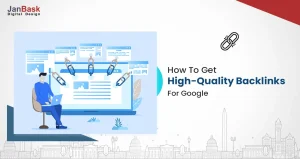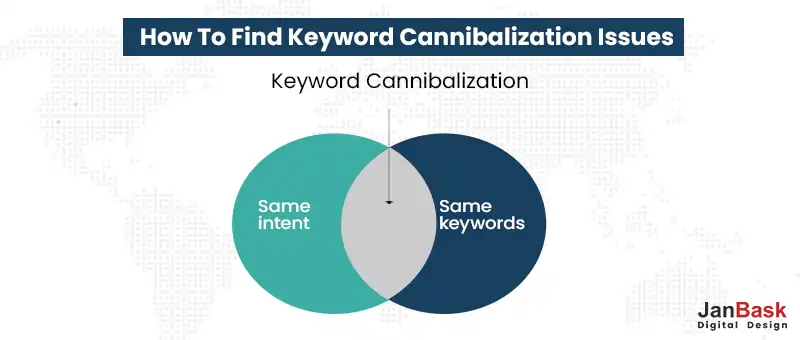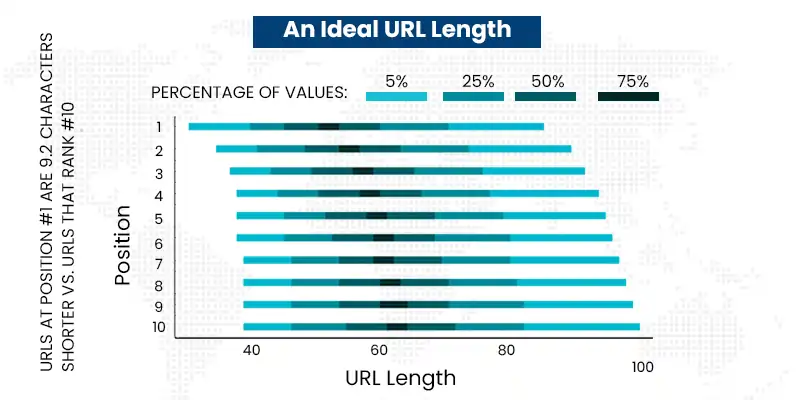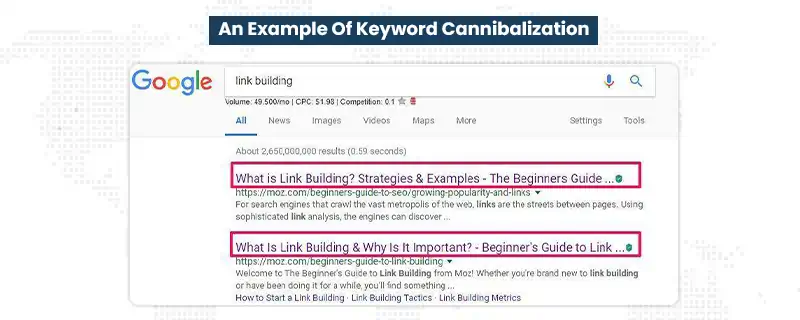
An SEO strategy is considered to be successful if it is designed to increase the visibility of relevant pages on a website to the target audience. On-page SEO services, such as a content optimization plan, on-page optimization, and working with SEO services to get you on the proper page are some of the ways that this may be accomplished.
If you do this correctly, you will have the appropriate page ascending the ranks, which will provide you with the relevant visitors that you require.
However, when dealing with tactics such as SEO services, one aspect you should be aware of when collaborating with content marketing experts is the efforts they take to minimize keyword cannibalization. This is one of the things you should be aware of when working with content marketing professionals.
Take, for instance, the scenario in which you do not own an on-page SEO checklist or an all-encompassing content optimization approach. If this is the case, you can end up with overlapping pages, and you might also discover that your own pages are in competition with each other.
Therefore, when selecting search engine optimization services, you must know certain things:
Interested in our Professional SEO Services?

Keyword cannibalization occurs when multiple pages on a website target the same search term with the same intention. Because of the way that one of the pages influences the other's capacity to rank, neither of the pages will function as well as they should under normal circumstances.
Let's imagine you want your website to rank highly for the phrase "hotels in Paris." You decide to write a piece on your site with the headline "7 Breathtaking and Lavish Hotels in Paris, France." You return to the area a few years later and notice that several new five-star hotels have been constructed since your previous trip. Therefore, you will develop a fresh post that targets the same term but also includes those one-of-a-kind luxury hotels.
This is an illustration of the practice of SEO keyword cannibalisation. Even though they were published on the same website several years apart, the two posts share the same keyword and focal point.

They incorporate the same keyword in the headline, and it is likely that they will use the same phrase multiple times throughout the body of the article. Additionally, the content will be comparable overall as per an SEO company. Even if you optimize multiple pages on your website for the same keyword, that does not guarantee that those pages will rank highly. On the other hand, two pages that use the same keywords but have distinct search intentions can coexist on the same website without causing any problems.
You can use the best keyword research tools to avoid any problems.
Keyword cannibalizing can lead to a number of problems and reduce your website's performance in SERPs.
Have you noticed that the ranking for a specific keyword continues to shift?
When trying to rank URLs that are continually changing, you may be engaging in keyword cannibalization, and this often indicates that Google is unable to determine which page should rank.

Because positions regularly shift, the user's experience and the route to conversion are badly impacted. This is especially the case when one page leads users at a significantly higher rate than the other page.
Sometimes you may believe that your website's ranking would improve, but it appears to make absolutely no progress at all. This is especially frustrating when you are aware that you have gained outstanding links and developed amazing tools for content optimization of your website.
This is a typical problem that is caused by keyword cannibalization, and it may be very annoying. Because the authority of your pages is distributed across multiple pages rather than just one, rather than ranking as highly as it should, neither one of your pages is performing as well as it could be.
Links are one of the most important factors in determining search engine rankings; yet, when a link's authority is distributed across numerous URLs, it can lead to even more confusion about what is ranking. Cannibalization checks can be done through Position Tracking to see if there are any problems that could be preventing your rank from rising.
This ranking fluctuation typically occurs at the same time as URLs are being changed. Your SEO services may have noticed that your ranking position for a particular term is constantly shifting, and the shifts are often extreme. When URLs structure are changed, this is something that can result from keyword cannibalization. Due to the presence of conflicting signals, the ranking position will shift correspondingly. Imagine that one page has received more links than another, but there appears to be a contradiction between the page's intended purpose and the quality of the overall material.
If this is the case, it may indicate that the fluctuations in your organic traffic may be extremely noticeable if one of the URLs ranks in a powerful place for a term that receives a lot of search activity.
Sometimes you will notice that the incorrect URL ranks for the term that you are trying to rank for. This may be a single product that is ranking for a keyword that you identify with a category or subcategory. Alternatively, it may be a piece of content that is distinct from the one you think should be ranking; for example, it may have been written many years ago. You are trying to rank the "wrong" URL, while a different URL is actually more relevant. If people end up on the incorrect page, this might have a negative impact on conversion rates.
The next step, after learning what keyword cannibalization is, is to identify the pages that are wasting their time and yours by using the same keywords.
Problems with cannibalization can be investigated in a few distinct ways.
Keyword cannibalisation SEO problems can often be identified using Google Search Console (GSC), which is an excellent tool. You may use it by going to the performance report, where you will find a list of searches that your site has received impressions and clicks from by default. When you select one of these questions by clicking on its "pages tab," you will be presented with a list of URLs that score well for that query as well as the statistics that are linked with it.
You can always use the Position Tracking tool that Semrush provides in order to keep an eye on pages that may have cannibalization problems. Within the tool, if you have an SEO company, you will discover an option labeled "cannibalization."
This is an excellent location to begin looking for problems that are present on your website. When it comes to utilizing this instrument, you have a couple of different choices. As per SEO services, it is possible to view potential problems either by "pages" or by "keywords" to locate possibilities and begin repairing them as early as possible. Your SEO company will recommend that you begin with the keyword "view" as your first step. You will examine keyword cannibalization on a more frequent basis, but this time it will be done on a keyword-by-keyword basis as opposed to a page-by-page basis.
In order to prioritize opportunities, you can perform an analysis on any given keyword to determine where numerous URLs are ranking and the positions they emerge in. This analysis should take into account the total number of searches performed, the estimated traffic, and the current ranking position.
The Position Tracking tool provides assistance in studying URL fluctuations, which can indicate whether or not there is an issue with keyword cannibalization SEO. By utilizing these elements of the program, you will be able to spot problems at a high level, as well as pinpoint when the problem first appeared and which pages are competing with one another for traffic.
Use the "site:[domain] keyword" search operator directly on Google to find a list of sites that are considered relevant and optimized for a given term. This will help you find pages that are relevant to your search. Conduct a manual analysis check to determine the purpose of these pages if you have reason to believe that you are the victim of cannibalization. If you find that the two pages are seeking the same goal, you can implement changes so that just one of the pages is doing so, even if you find that the two pages are pursuing the same goal.
First and foremost, you should always be keeping an eye on your site. Don't rely entirely on a Semrush toolset when looking into untapped avenues for SEO content writing development. You can avoid duplicating your efforts by using tools like Organic Research and Domain Overview to see what you're already placing for. Before putting something new up on your site, make sure nothing else there serves the same purpose.
It shouldn't take too much time and should happen while you're researching keywords.
When it comes to addressing problems caused by SEO keyword cannibalization, there is no approach that is universally applicable. The specifics of the situation dictate the approach you should follow in order to find a solution to the issue. On the other hand, there are some tried-and-true solutions that you can implement when the time is right to do so.
There are situations when you won't be able to get rid of the cannibalized pages and retain only one. If what you say is accurate, there are a few situations in which it would be beneficial to use canonical links.
You are able to use canonical links for the following:
In situations like this, you might want to think about utilizing canonicalization as a tool to assist you to sort out the issues. If you do this, you will have the ability to designate a single page as the primary, which will indicate to Google that this particular page should receive a higher ranking on the search engine results page (SERP). In addition to this, it guarantees that performance signals, such as link equity, are properly ascribed to the canonical page. Because you are now on this page, any of the other pages will have to be erased, and users will still have full access to each of them.

Put in place some 301 redirects on your website if it has numerous pages that address the same objective, but you only need to maintain one of these pages live. Once your SEO company has determined which of the cannibalizing pages is the most powerful, you should remove the other pages and 301 redirect their URLs to the page that is the most powerful. When making your decision, you should take into account signals such as organic visibility across other terms, inbound links pointing to the pages, and historic traffic.
In most cases, this is the simplest solution to problems caused by keyword cannibalization SEO. Make sure that any internal links that point to pages that you delete are updated once you delete those pages. Aside from that, over the next few weeks, you should observe the URLs that were removed gradually disappearing from Google's index.
You may realize that you have accidentally triggered keyword cannibalization at the metadata stage simply because you have not optimized for keyword variants. This can be a frustrating discovery. For illustration's sake, let's pretend you manage an online store and one of the products you sell comes in three distinct colors. Even though the product photos are different, it is not uncommon to see the identical title tag and H1 tag being used for multiple variants of the same product that are located on separate URLs.
In this scenario, you can re-optimize the page for each variant in order to target more precisely and find a solution to the problems caused by keyword cannibalization.
You should think about implementing this next option in the event that, for whatever purpose, you are incapable of deleting and redirecting the pages that are causing the issue. You might try implementing tags with the rel="noindex" attribute or an HTTP Response Header on all of the pages of your site save for the one you have selected as your homepage. Using this strategy, it will be possible for each page to continue existing on the site. However, with the exception of one page, they will all be removed from the index, which will fix the cannibalization problem.
In light of this, canonicalization is favored over noindex due to the fact that ranking signals are assigned to the canonical, but they will not be for noindex in the event that it is used. Caution should be used while utilizing the noindex strategy. Both the "noindex" meta tag by itself and the "robots.txt prohibit" directive in general are not reliable indicators of canonicalization. Simply including a noindex meta tag on a page is not sufficient to indicate that you wish to have it coupled with another element or that signals should be delivered.
This is also where the guidance that says you shouldn't mix noindex and rel=canonical originates from; these two pieces of knowledge are quite contradicting for us. In most cases, we will choose the rel=canonical option and use that rather than the noindex one; however, if you rely on the interpretation of a computer script, you decrease the weight of your input: (and a significant portion of search engine optimization consists of communicating your preferences to computer scripts).
You run the risk of attributing ranking signals to your home page if you are not attentive since this will cause you to transmit signals that are in direct opposition to one another. Think of the tag pages on your site as an example. When you need to handle keyword cannibalization concerns caused by thin material that does not have any backlinks and does not receive any organic traffic, using noindex can be helpful.
When you are utilizing exact match anchor text that goes to distinct sites, you may be able to fix keyword cannibalization difficulties by rewriting your internal linking structure. This is especially true when you are linking to different pages. Cleaning up errors can be made easier by reworking internal links to assure that they are correctly set up and redirected to the appropriate page rather than a cannibalized version of the page. However, by itself, it is typically insufficient to completely rectify the situation at hand. To achieve more favorable results, you should combine this strategy with the practice of cleaning up pages that conflict with intent.
A single product page that performs well for search terms linked to a company's whole product range is an example of the keyword cannibalization problem that frequently arises in online retail. When this occurs, the problem can easily be remedied by just creating a new page because there is no "range" subcategory to begin with.
You will find "the next best thing" ranking when there isn't a page that meets the intent, then you simply make one. After that, you should find that the issue no longer exists because it accomplishes what it set out to do.
When you discover that two or more of your pages are weaker but competing with one another, you should combine and consolidate them into a single webpage as soon as possible. You are, in essence, producing one page that is more substantial by utilizing numerous pages that are less significant. This strategy is typically the most effective one to implement when you have one key page that stands out, has links that go to it, or is receiving traffic but you can't pinpoint which page should be considered the primary one.
It could also signify that you need to update the material in order to make the final page better. It's possible that you'll need to make sure that 301 redirects are set up for any pages that are deleted or URLs that are modified in order to preserve any ranking signals.
When trying to design your content optimization plan or hire SEO writing services, you need to take into consideration the influence that keywords on a particular page will impact on the rest of your website. This is because keywords on one page can have a domino effect on the remainder of your website.
Our on-page SEO at JanBask Digital Design, which include SEO content analysis and CRO audit services, are intended to increase the visibility of your website in search engines. This, in turn, requires taking precautions to avoid situations such as keyword cannibalization.
Because of this, you require SEO services who are familiar with how to handle the content of your website and guarantee that each page competes well with the material of other websites – and not just your own pages.
Get in touch with JanBask Digital Design as soon as possible to obtain a complimentary website audit and CRO audit, and to acquire additional information regarding the services that can improve the functionality of your website.
Interested in our On-Page Services?

1. What Is Keyword Cannibalization In Digital Marketing?
Cannibalization is a term used in digital marketing strategy that refers to a decrease in sales revenue, sales volume, or market share of one product caused by the introduction of a new product by the same firm.
2. What Is Content Cannibalization?
When you create many pages on your website that target the same or similar keywords, and as a result, hurt the organic performance of your site, you are said to be cannibalizing your own content. This can happen when you force these contents to compete with each other for Google ranking.
3. How To Avoid Keyword Cannibalization?
Keyword cannibalization occurs when multiple articles or blogs on a website compete with one another to get a high position in Google's search results for the exact search term. Either because the subject matter they discuss overlaps too much or because you optimized both of them for the same keyword phrase.
N
Thanks for sharing these details.
B
I appreciate your insightful content.
B
Could you help me with more information?
S
I am new to digital marketing, should I be aware of this?
P
You guys did a brilliant job!
L
Excellent team and teamwork!